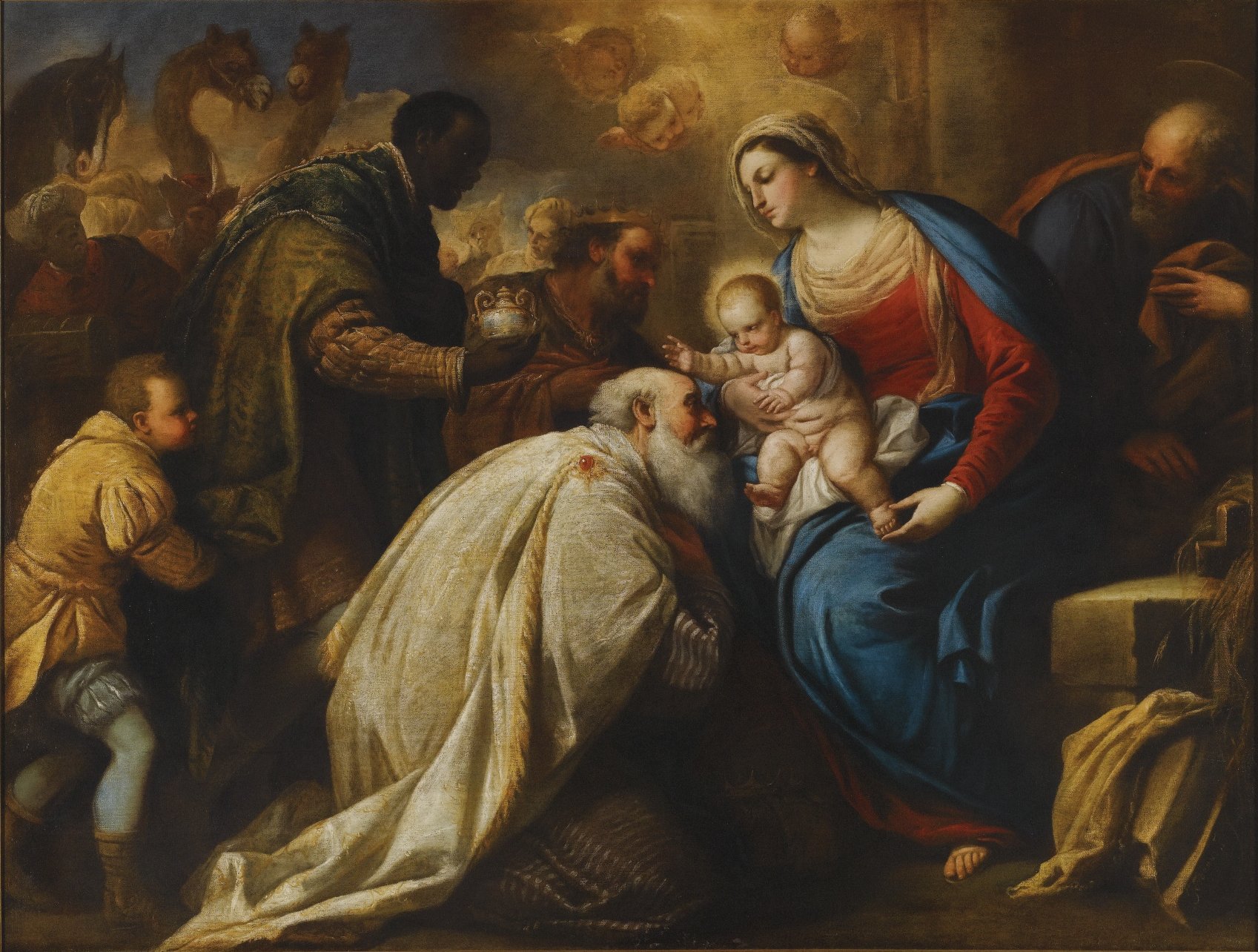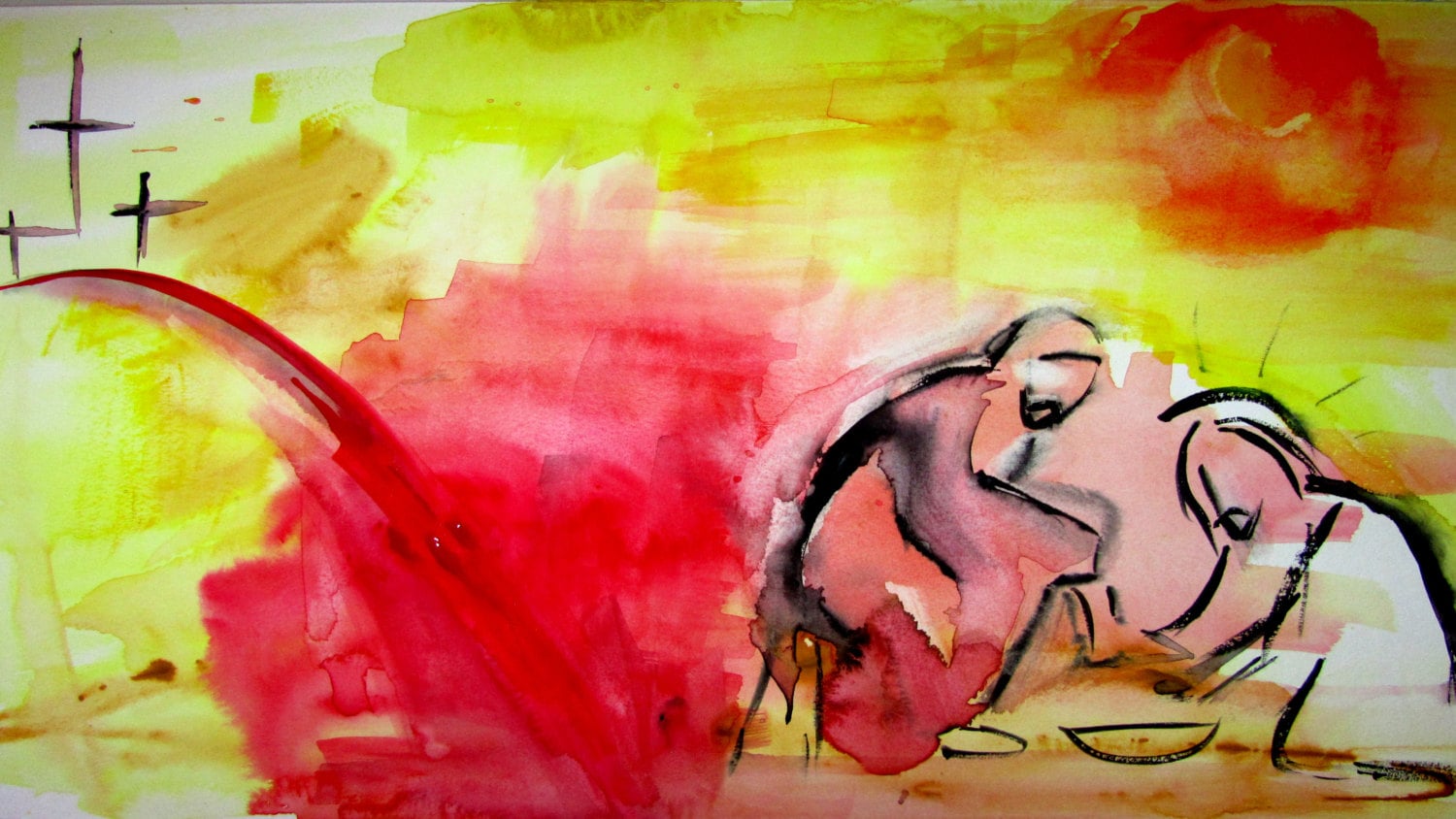Baptism of Christ: Isaiah 43:1-7, Acts 8:14-17 and Luke 3:15-17, 21-22
A sermon preached on Baptism of Christ
Image: a woodcut by Dr. P. Solomon Raj
You are my Son, the Beloved
The one who nursed upon his mother’s breast as angels filled the air with glory is beloved; the toddler the gift-giving magi sought, is the Son whose family flees to spare him Herod’s wrath.
Today’s epiphany is revealed not by a star but in the river flowing through the wilderness and in the cloudy air broken by a descending dove.
Beloved.
The love and power and majesty of God is here: God is one of us.
Humbly standing in solidarity with us on the same muddy river banks where crowds long to plunge into running waters; repenting, turning again to love, to lay claim to new life.
The air fizzes with expectation. Hearts wonder if John is the Messiah, the one who is to come. But no, he points to water and to one who will come with more power to forgive.
The Son who will come with Spirt and redeem us from fire by fire.
Here he is named, blessed and made known. The Beloved.
As he prays, God as Three-in-One speaks, pauses and descends to us.
Revealing a single loving heart.
The only rhyme and pulse of life by which all things are made;
and now calls us beloved too, that we and all things may be made anew.
Loved. Belovèd. Be loved. Be.
The first moment of Jesus’ public ministry is to draw alongside us.
In our expectation and desperation; in our questioning and our dreaming.
As the poet puts it: ‘the one discharge from sin and error’.
Here he joins us in the waters of creation; the waters crossed on the way to freedom;
He steps into the waters of God’s work in our life.
Water which cleanses, heals, and refreshes.
As the deep waters swirl and run, God’s mercy is heard
in our broken world where we thirst for justice to be restored.
On muddy banks this sin drenched world is sanctified.
The Beloved call us to be loved.
This goes to the heart, our hearts.
We are all in this together, knowing that human power can alone cannot make whole.
The jealousies and injustices; the fear of lack and want; the pains of our loving and our mortality.
All this, and more; the things we commit or omit; the negligence, fault and loss.
In all that may overwhelm, Jesus comes with the refines art to heal, purify and gather up.
Jesus’s birth reveals God’s loving heart in weakness and vulnerability.
And now, before the Word of God speaks, he quietly steps into the depth of our chaos.
The one whose family had taken refuge in a foreign land, here continues that costly solidarity.
Here the prophet’s words ring true: do not fear; I have redeemed you.
For in this one, God is with us as we pass through the waters of life and death;
In him no river can overwhelm; no fire consume.
The voice of love names him: beloved; you are mine.
That same voice of love calls to us: you are precious, honoured, you are loved.
Do not fear.
I am with you.
Be loved, belovèd.
Not because we are perfect or wholly good; but because it is God’s nature to love us.
And there by to heal, make whole and holy.
That is to know a radical solidarity and unity of love, which is the heart of God’s very self.
And thereby for love to be birthed anew in us in these waters.
Even if we cannot remember the moment of our own baptism, just as we cannot recall our birth, the promise remains.
This is our new identity: baptised, connected, interdependent, made one.
Fed in a wafer thin piece of bread, that is the fulness of love made real in ordinary stuff.
We find ourselves, in Christ, bound to one another and all humanity.
In this we are set free to love and be loved; to be that love in the world around us.
To create, inspire, work and serve; to teach, nurture, feed and listen.
For in every human inclination and conversation, we are invited to love.
Baptism invites us to find the fire of love in the ordinary.
And there perhaps to glimpse an epiphany, a revelation of God in renewed trust, in completed task, in care given, in being heard and understanding.
You are my Son, the Beloved
Says the voice of the Father’s heart to the Son; that loving heart beats in all things through the Spirit’s work.
In open hearts and in human touch we respond and receive to that Spirit that kindles light and love in us.
Love and power not embodied perhaps in that descending dove; but made flesh in patient acts of care; in diligent fulfilling of tasks entrusted to us; in the waiting in the mess; in the creation of new relationship.
Beloved is the promise; our identity.
Love is the heart becoming embodied in us.
Here in weakness and vulnerability, our Lord invites us to learn empathy and compassion.
The challenge is to find this holy love and way of being in our ordinary.
To choose it, embrace it, live it.
In muddy water and refreshing spring; in water that feels to deep.
We take a deep breath; and take the plunge.
As Jesus stands with us and prayers at the water’s edge, he embraces all of our humanity.
He refuses to turn away from shame or scandal, creativity or care.
The voice that made the world came from heaven saying ‘you are my Son, the Beloved’.
This is God in us who makes things new.
As another poet puts it:
‘He calls us too, to step into that river
To die and rise and live and love forever.’
Beloved. Be loved. Love.
Let us pray:
Heavenly Father,
at the Jordan you revealed Jesus as your Son:
may we recognise him as our Lord
and know ourselves to be your beloved children;
through Jesus Christ our Saviour. Amen.









